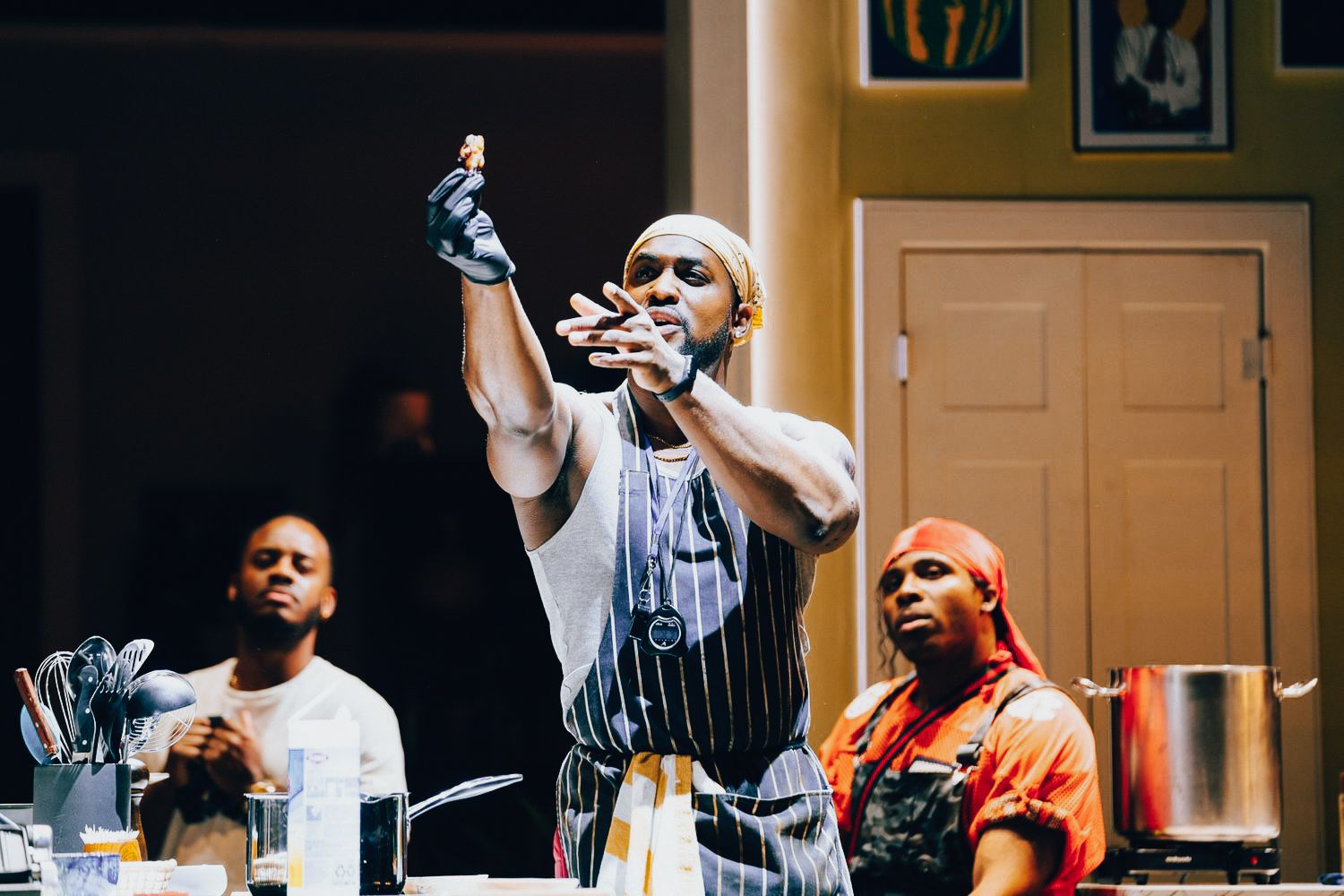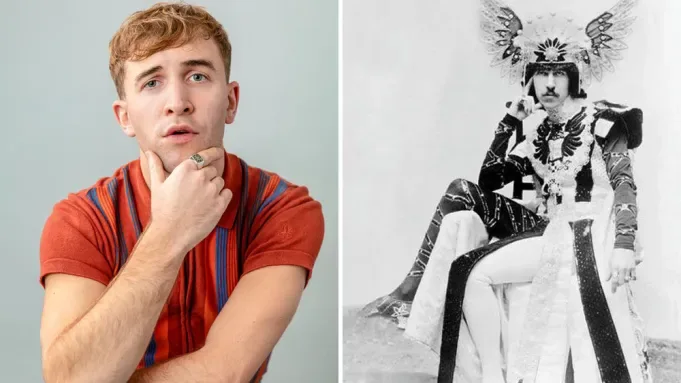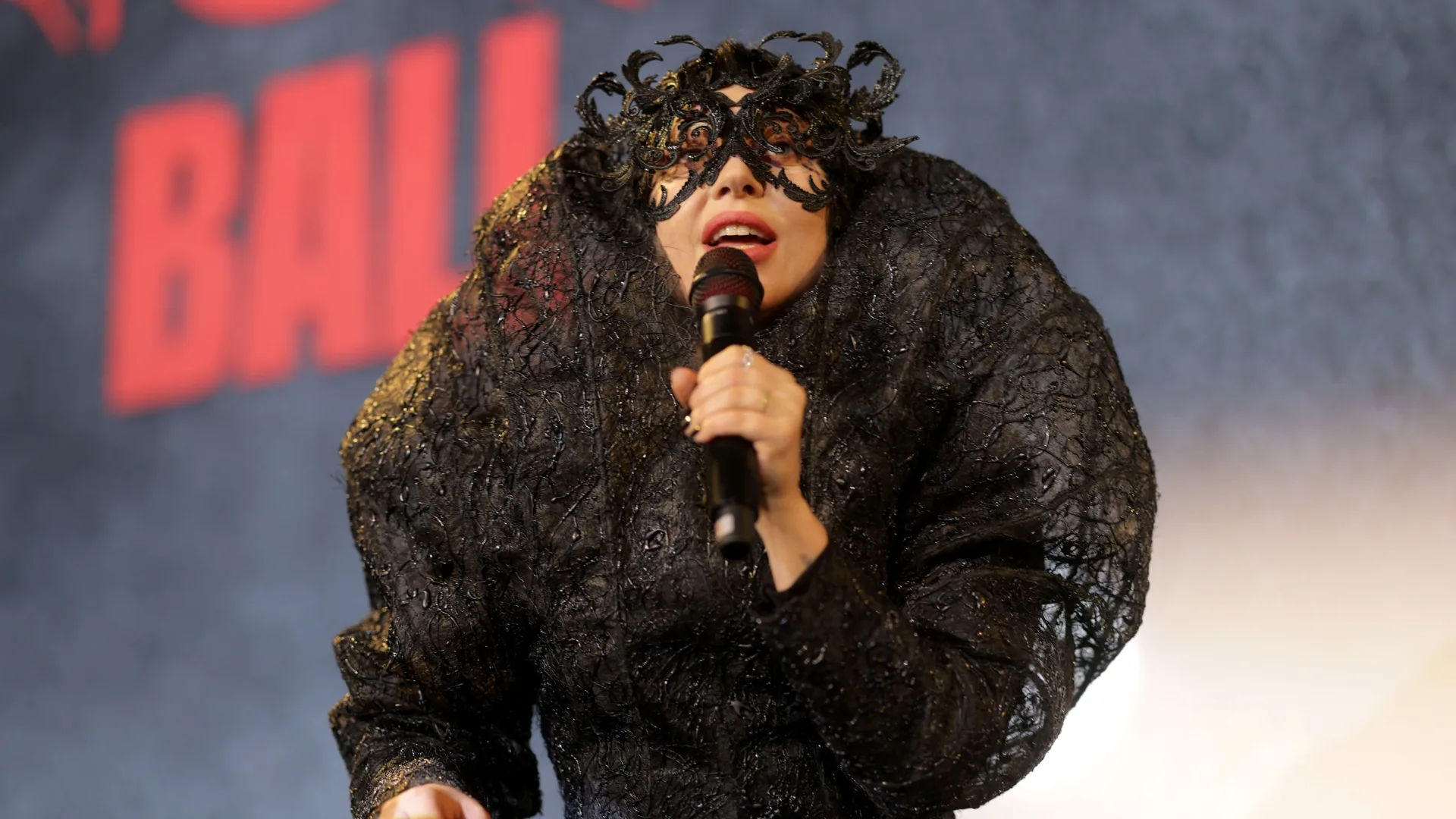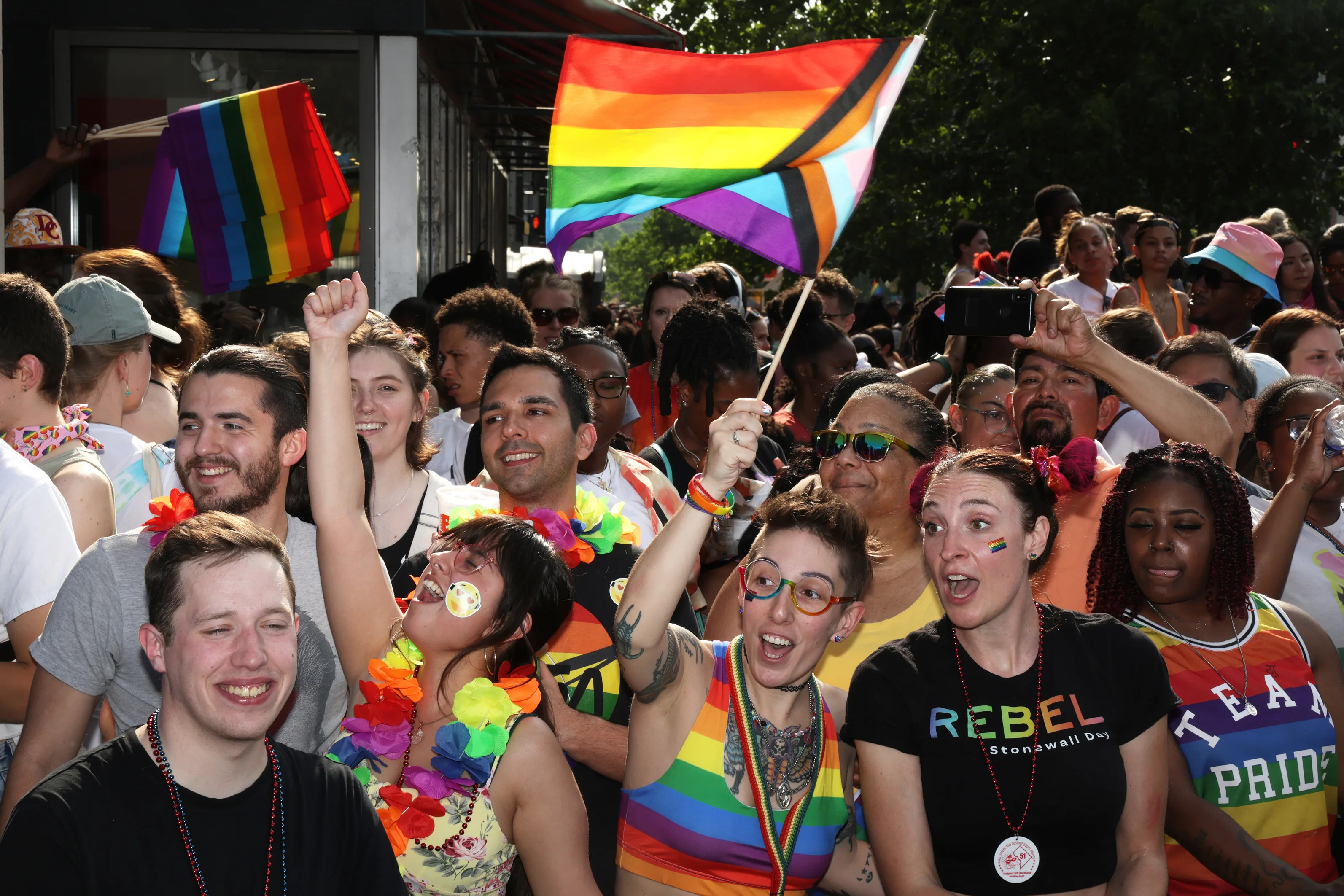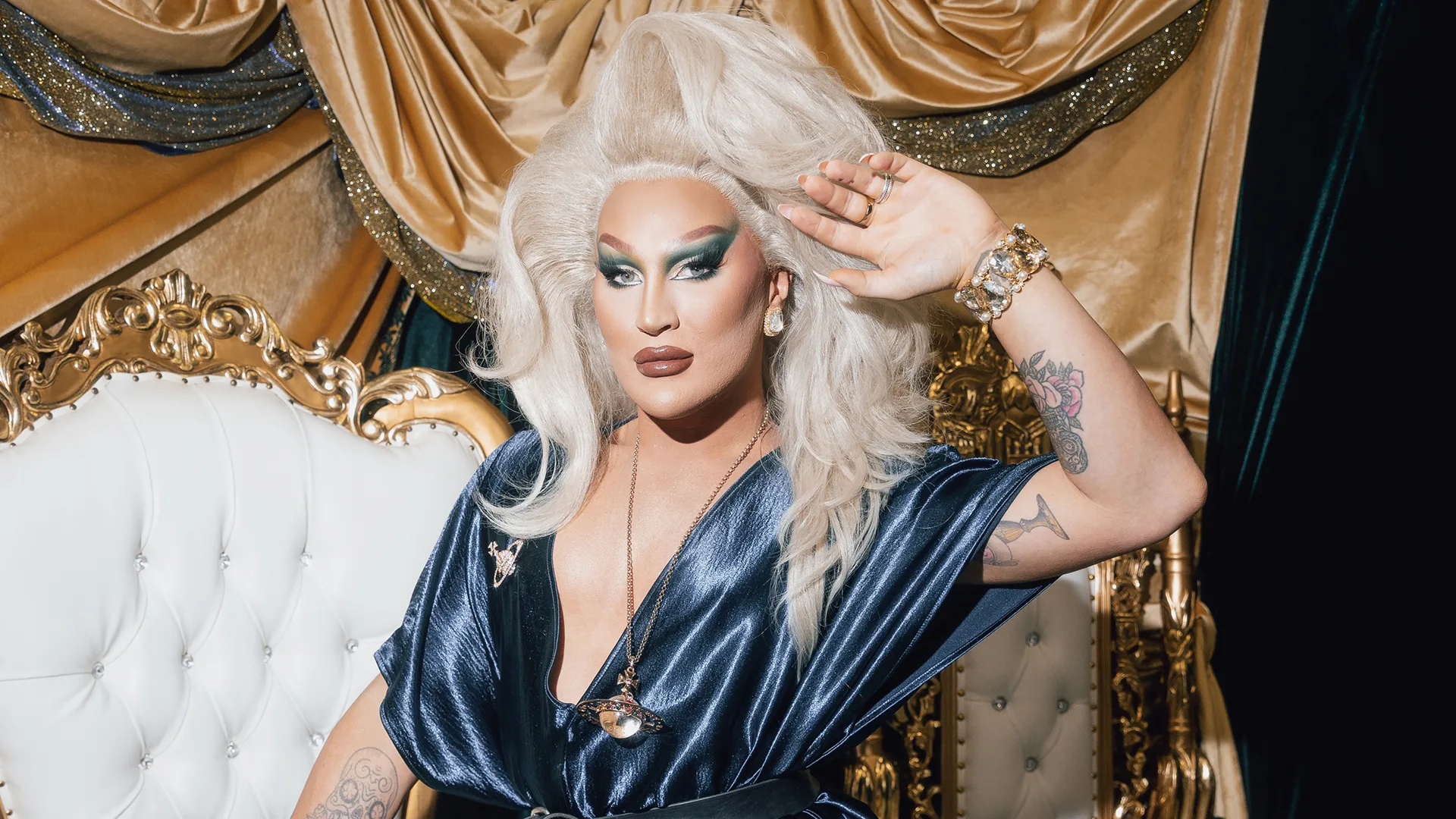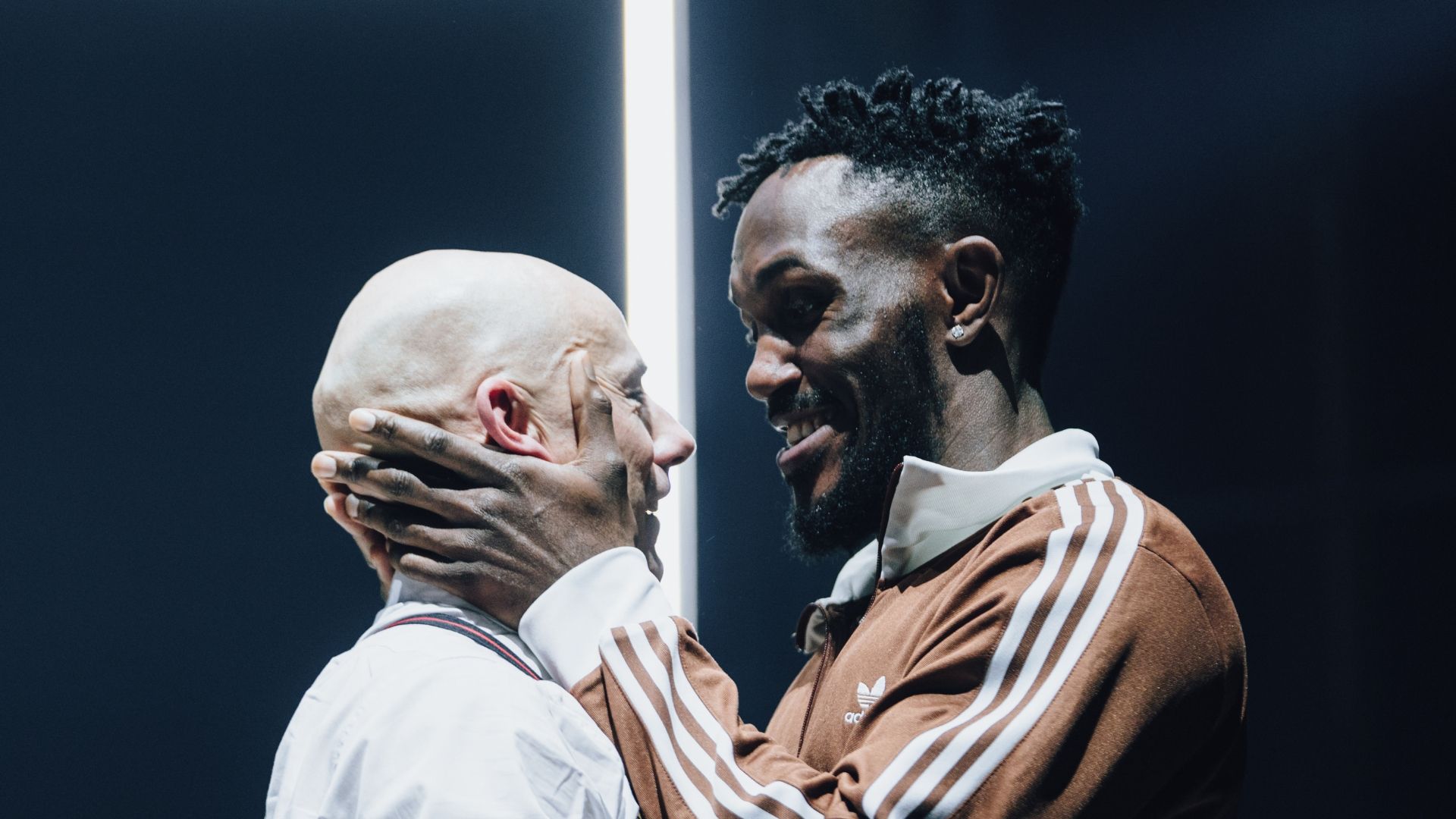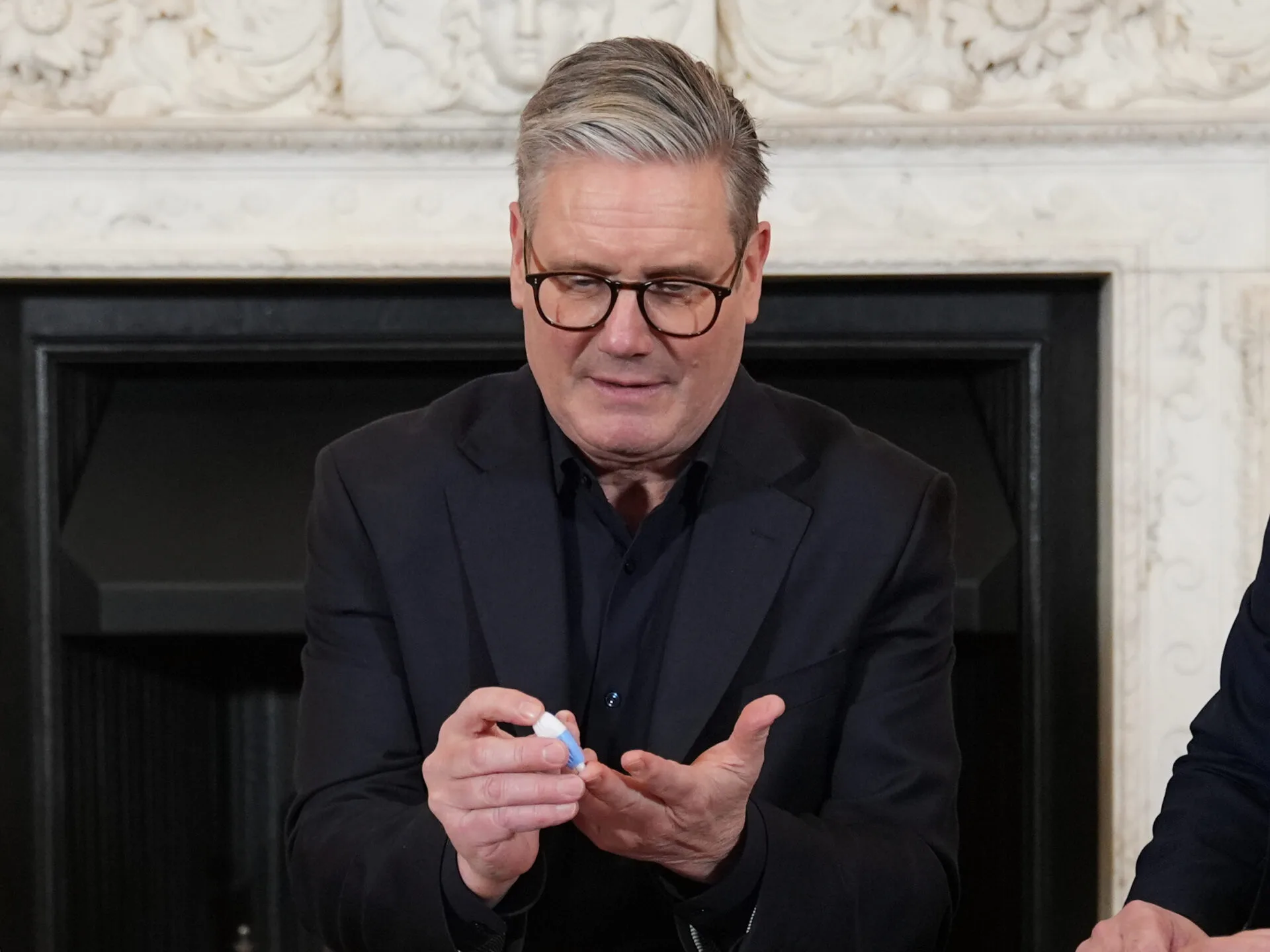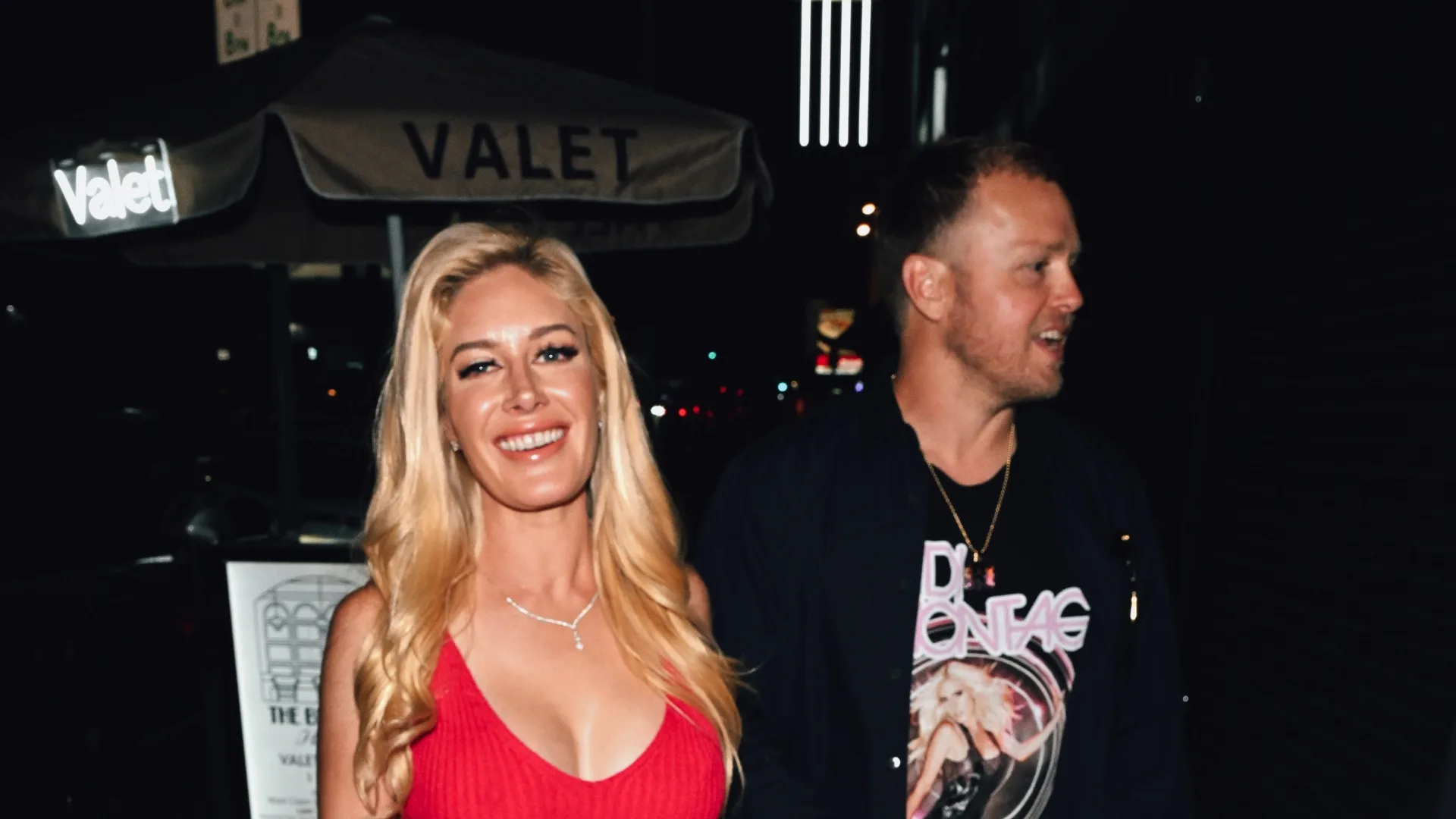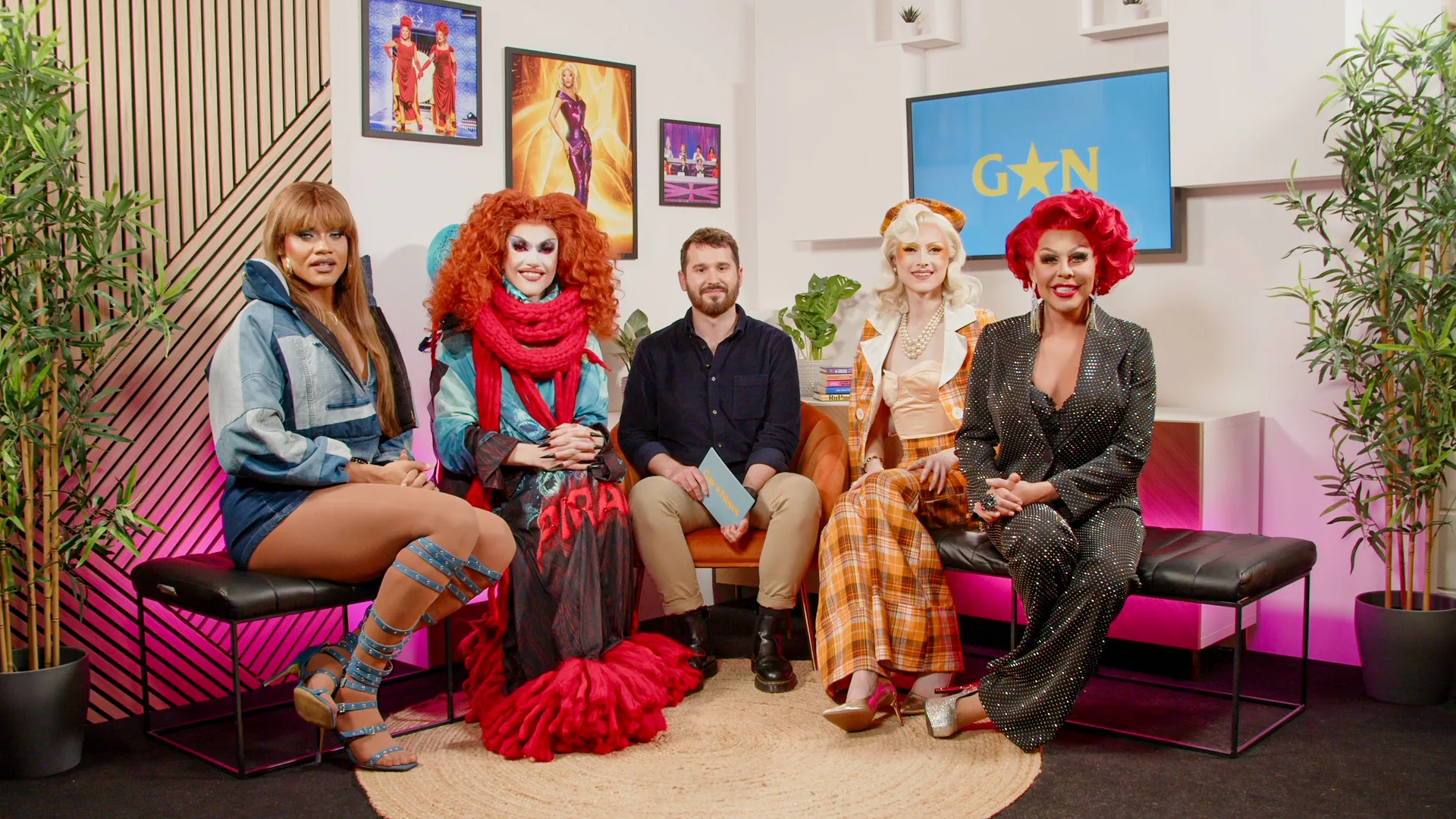What makes a strong man? Is it being a good dad? Providing financially? Or just eating a really, really spicy chicken wing?
On a low lit porch, a Black teen watches a Black man soaking wood chips. The boy asks the man about his identity, and the awkward journey it took him to get here. Cordell had a long heterosexual marriage, two sons and a seemingly perfect life, so why did he leave that all behind to move states and shack up with another guy? The answer is complicated, but trying to please a closed-minded father when he knew he was “Gay Gay”, certainly didn’t help. For decades, Cordell (Slow Horses’ Kadiff Kirwan) was weighed down by the pressure, as a sports star and Southern man, “Not to be a f***ot. A disgrace.”
When he met future-boyfriend Dwayne (Simon-Anthony Rhoden) in a barber shop, he couldn’t hide from himself anymore. They slept together for the first time, “and that’s when I knew there was someone strong enough to hold all the pieces, all the cracks.”

And so here he is, five years later, having a prolonged anxiety attack about chicken wing sauce, in a kitchen which is not his own, nearly 300 miles from his family in St Louis. Tomorrow is the day of the hot wing competition, and friends Isom (Olisa Odele) and Big Charles (Jason Barnett) are joining Cordell and Dwayne to form the New Wing Order cooking crew and take the crown. But the couple’s relationship has hit a tense crossroads, where both men are failing to fully integrate one another into their lives, out of fear, or self-preservation, or shame, or pride. Maybe the anxiety is not about the chicken.
The mood of Katori Hall’s Pulitzer Prize winning play The Hot Wing King, now showing at The National Theatre, fluctuates from riotously funny – “one third of straight men like to have their prostate tapped” – to walking-on-eggshells-awkward. Isom, Big Charles and the audience all have a front row seat to Dwayne and Cordell’s passive aggressive digs and silent treatment.

But this is punctuated by joyful, heartwarming and romantic scenes of Black Queer love. The couple passionately kiss and hold each other, the way couples do once the fog of hormones has passed and given way to something far stronger. A group dance break to “Never Too Much” by Luther Vandross fills the theatre with whoops and cheers. Even a spicy mishap threatening the New Wing Order’s fate at the contest is not enough to pull this chosen family apart.
Over the course of nearly three hours, the cast of six men explore fatherhood, and the expectations of Black masculinity. The super spicy Main Man Challenge satirises machismo, while a conversation between Dwayne and his nephew’s father (Kaireece Denton and Dwane Walcott) culminates in a rhetorical question: “So pimping and selling drugs is more commendable than being Gay?”

The kitchen provides the perfect backdrop to this warm and intimate play. With each man’s mistakes comes a wave of guilt, but one takeaway is that forgiveness, to yourself as well as others, is an underrated value when it comes to “being a man”. As Big Charles tells Cordell, “all Black boys deserve love.” The night I saw the show, this line provoked a soar of audible agreement from the audience.
These characters will feel comfortingly familiar to a Queer audience, and this is no accident – The Hot Wing King was inspired by the experiences of the writer’s brother. “Seeing him navigate the southern world as a Gay Black man, I have always wanted to tell some version of his story,” Hall told the Guardian when the play was first shown in 2021.
The Hot Wing King also exists in a wider context of Black-fronted theatre currently being shown and celebrated around the UK. Slave Play, Jeremy O’ Harris’s controversial exploration of interracial relationships and slavery in the United States, recently opened in London’s West End to great acclaim. O’ Harris has also pioneered ‘Black Out Nights’, aimed at an “all-Black-identifying audience” who can watch the show “free from the white gaze.” At Bristol’s Old Vic, Choir Boy centres the stories of Black teenagers at a single-sex prep school.

“People have to be radically invited into a space to know that they belong there and in most places in the west, poor people and Black people have been told that they do not belong inside the theatre,” said O’ Harris to the BBC of his Black Out Nights initiative. In an interview with Gay Star News last year, Choir Boy star Michael Ahomka-Lindsay said: “Just the visual aspect of what we’re seeing [in rehearsals] of Queer Black love… just makes you feel seen. It’s just so exciting to have that on stage, to have that be visible.”
Which feels like a good setup for one of the final lines in the play, as Big Charles watches Dwayne and Cordell reconcile, more openly, and lovingly, than ever: “All this Black love, I can’t handle it.”
Book tickets for The Hot Wing King at the National Theatre here.
Follow the author on Instagram here.

